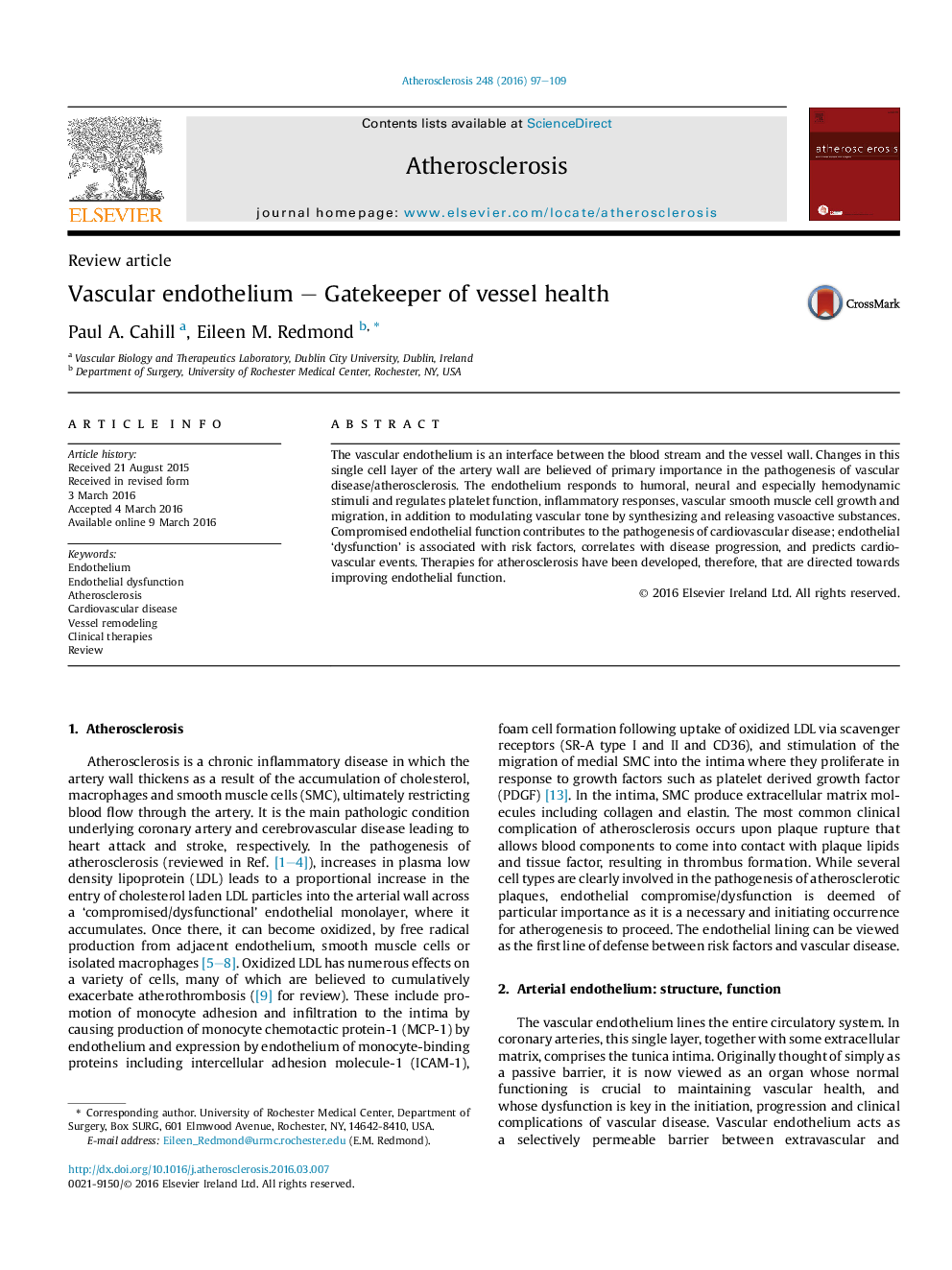| Article ID | Journal | Published Year | Pages | File Type |
|---|---|---|---|---|
| 5943250 | Atherosclerosis | 2016 | 13 Pages |
Abstract
The vascular endothelium is an interface between the blood stream and the vessel wall. Changes in this single cell layer of the artery wall are believed of primary importance in the pathogenesis of vascular disease/atherosclerosis. The endothelium responds to humoral, neural and especially hemodynamic stimuli and regulates platelet function, inflammatory responses, vascular smooth muscle cell growth and migration, in addition to modulating vascular tone by synthesizing and releasing vasoactive substances. Compromised endothelial function contributes to the pathogenesis of cardiovascular disease; endothelial 'dysfunction' is associated with risk factors, correlates with disease progression, and predicts cardiovascular events. Therapies for atherosclerosis have been developed, therefore, that are directed towards improving endothelial function.
Keywords
Related Topics
Health Sciences
Medicine and Dentistry
Cardiology and Cardiovascular Medicine
Authors
Paul A. Cahill, Eileen M. Redmond,
